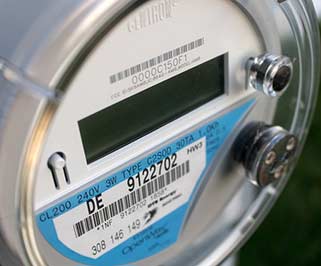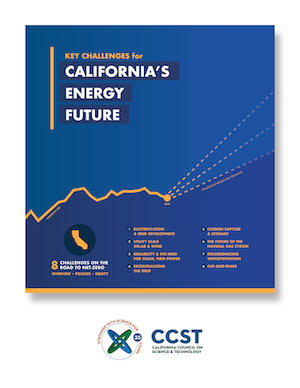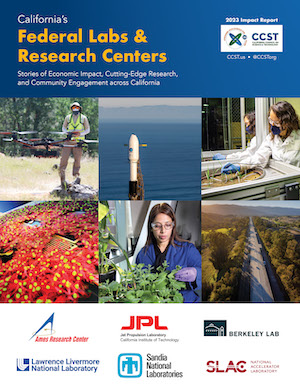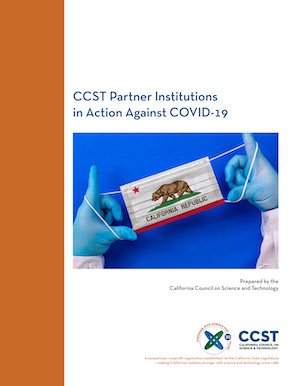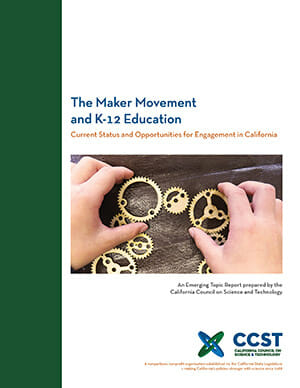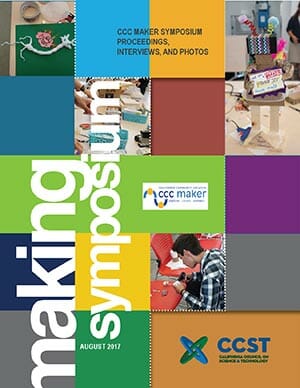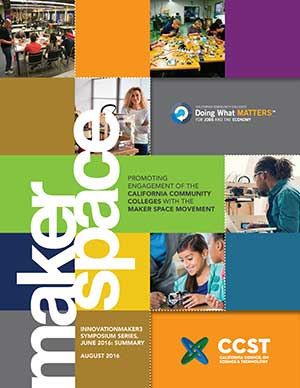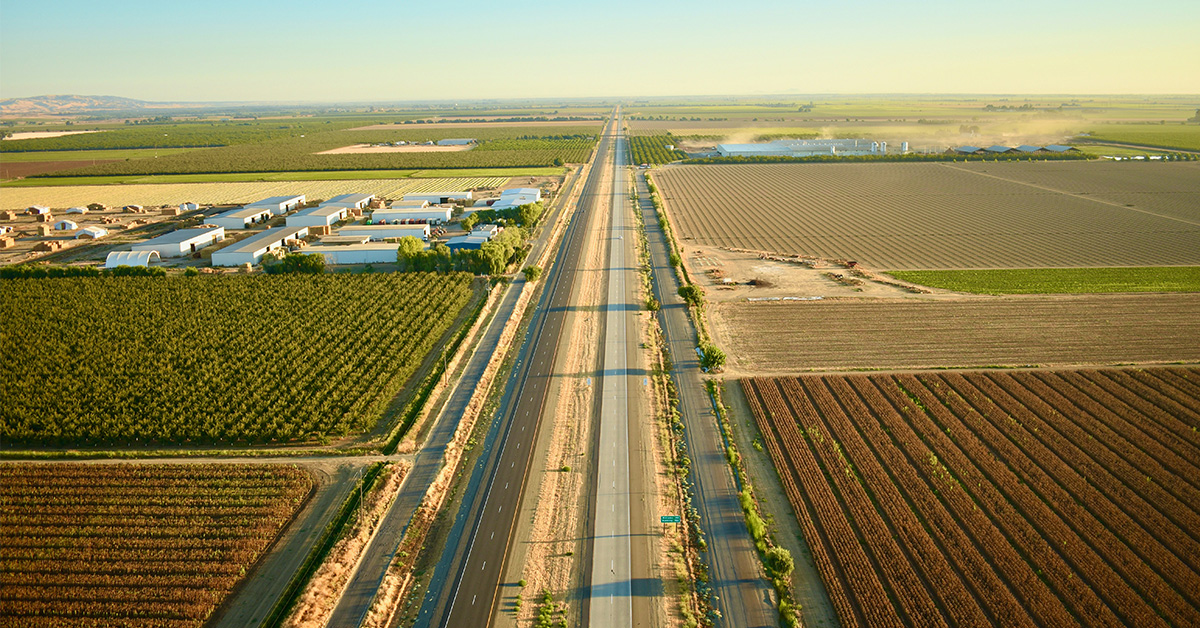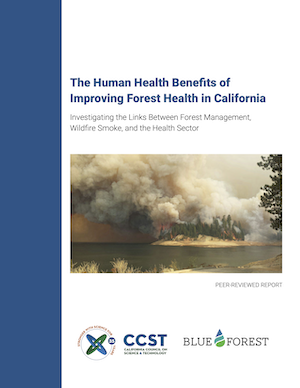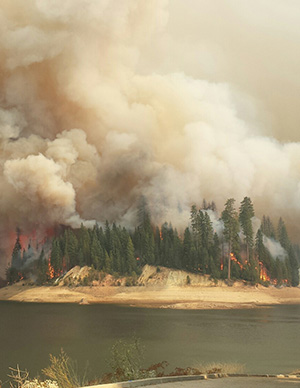CCST Project
Orphan Wells in California
Process
This report will be researched and written by principal researchers and select CCST staff within a project team, with an appropriate range of expertise, a balance of perspectives, and no conflicts of interest (unless a conflict is deemed unavoidable and is promptly and publicly disclosed). As the report is drafted, it will be submitted for feedback from identified experts and CCST Council Members for review based on their expertise.
CCST strives to produce reports through a transparent process to ensure that the final product is responsive to the questions of the sponsor, while maintaining full scientific independence. Transparency is achieved by engaging the sponsor in dialogue about the nature of the information they need and informing the sponsoring agency of our progress. CCST studies follow a process modeled after the National Academies study process with checks and balances at each stage. The report is a collaborative effort by a large number of experts serving in various capacities.
Project Team
Dr. Judson Boomhower is the primary analyst for the study and will be assisted in writing the body of the report by CCST staff members Dr. Mikel Shybut and Dr. M. Daniel DeCillis. Terence Thorn serves as the project team's lead expert advisor.
Terence Thorn, JKM Consulting
Judson Boomhower, UCSD
Mikel Shybut, CCST
M. Daniel DeCillis, CCST
The following institutions are subcontractors and are not responsible for the final content of the report, which rests with CCST and the Project Team:
UCSD
JKM Consulting
Peer Review
Peer review is the process of the evaluation of the scientific and technical merit (and likelihood of success) of the proposed research project/program by a panel of reviewers with direct expertise in the area of research to be evaluated who have no personal stake or interest in the outcome of the evaluation process. The salient features of the peer review process are the evaluation of the research program by "peer" experts in relevant fields who are deemed qualified to evaluate the product based solely on the scientific and technical merit of the content. It is standard practice to keep the identity of peer reviewers confidential as well as all of the comments and deliberations.
All CCST reports are peer reviewed using guidelines and processes established by CCST to assure the highest scientific and technical standards. Guidelines are similar to those of the National Academy of Science, adapted to be appropriate for California. It is standard practice to keep the identity of peer reviewers confidential as well as all of the comments and deliberations.
Project Team & Staff Bios
Judson Boomhower Ph.D
Lead Author
Assistant Professor
Department of Economics, UC San Diego
Judson Boomhower is an applied microeconomist who studies environmental and energy economics and policy. His research covers a range of topics and industries including oil and gas extraction, electricity markets, energy efficiency, and the economics of climate change. He received a PhD in Agricultural and Resource Economics from the University of California, Berkeley. He earned his bachelor's and master's degrees from Stanford.
Terence Thorn
President
JKM Energy and Environmental Consulting
Terence (Terry) Thorn is a 43-year veteran of the domestic and international natural gas industry and has held a wide variety of senior positions beginning his career as Chairman of Mojave Pipeline Company and President and CEO of Transwestern Pipeline Company. He has worked as an international project developer throughout the world.
As a Chief Environmental Officer, Terry supported Greenfield projects in 14 countries to minimize their environmental impact. He wrote and had adopted company wide Environmental Health and Safety Management Standards and implemented the first environmental management plan for pipeline and power plant construction. In attendance at COP 1 and 2, Terry has remained involved in the climate change discussions where he is focusing on international policies and best practices to control methane emissions.
Residing in Houston, Terry is President of JKM Energy and Environmental Consulting and specializes in project development and management, environmental risk assessment and mitigation, business and policy development, and market analysis. He has done considerable work in the areas of pipeline integrity management systems, management systems auditing, safety and reliability and the reduction of methane emissions from natural gas facilities.
He also serves as Senior Advisor to the President of the International Gas Union where he helps drive the technical, policy and analytical work product for the 13 Committees and Task Forces with their 1000 members from 91 countries. He also serves on the Advisory Boards for the North American Standards Board where he co-chaired the gas electric harmonization task force, and the University of Texas' Bureau of Economic Geology's Center for Energy Economics. Terry is also on the Board of Air Alliance Houston. He served on the CCST California Council on Science and Technology steering committee for the report that provided the state with an up-date and independent technical assessment of the thirteen natural gas storage fields in California. Currently he is on the CCST team that will estimate the liability and costs to the state of plugging and abandoning oil and gas wells and decommissioning their attendant facilities.
Terry has published numerous articles on energy, risk management and corporate governance and was author of the International Energy Agency's 2007 North American Gas Market Review. As advisor to European gas companies and regulators he co-authored The Natural Gas Transmission Business -a Comparison Between the Interstate US-American and European Situations, Environmental Issues Surrounding Shale Gas Production, The U.S. Experience, A Primer. As a participant in the National Petroleum Council Study Prudent Development: Realizing the Potential of North America's Abundant Natural Gas and Oil Resources (September 2011), Terry wrote the section on electric gas harmonization, co-authored the chapter on electric generation, and advised on the residential commercial chapter. Most recently he has completed market research projects on electricity markets, gas markets including modeling the US gas markets 2015-2050. Gas Shale Environmental Issues and Challenges was just published by Curtin University in 2015. His most recent papers are "The Bridge to Nowhere: Gas in An All Electric World," "The Paradigms of Reducing Energy Poverty" and "Making Fossils Fuels Great Again: Initial Observations About Trump's Energy Policy."
Mikel Shybut Ph.D
Project Manager, Author
CCST
Mikel Shybut is a CCST Program Associate. Previously he was a CCST Science and Technology Policy Fellow appointed to the California State Senate on the Transportation and Housing Committee, which analyzes legislation covering policy areas from essential infrastructure needs to autonomous vehicles and affordable housing.
Shybut received his PhD in Plant Biology from UC Berkeley, where he studied the molecular mechanisms of cassava bacterial blight, a disease of agricultural significance in the tropics. Shybut completed his BA in Biological Chemistry and in Russian at Grinnell College in Iowa.
M. Daniel DeCillis Ph.D
Senior Research Associate, Author
CCST
M. Daniel DeCillis is Senior Research Associate & Director of Web Operations at the California Council on Science and Technology, where he has worked since 2001. He has been principal project writer on studies including the Overview of California State-Funded R&D, 2004-2007 (2008), Critical Path Analysis of California's Science and Mathematics Teacher Preparation System (2007), An Industry Perspective of the Professional Science Master's Degree in California (2005), Opportunities for Collaboration in High-tech Research and Teacher Professional Development (2004), the Critical Path Analysis of California's Science and Technology Education System (2002), and The Preparation of Elementary School Teachers to Teach Science in California (2010); he has also contributed substantially to CCST projects on nanotechnology, energy, and intellectual property. In addition he designed and edited the Workforce Investment Board Online Toolkit (2008), a major component of CCST's contributions to the California Innovation Corridor project. In 2011, he edited and reviewed Imagining the Future: Digitally Enhanced Education in California and components of California's Energy Future. In 2012, he completed the California Climate Change Research Database website. He was part of the team that produced the 2014 report Achieving a Sustainable California Water Future through Innovations in Science and Technology and a co-author on Promoting Engagement of the California Community Colleges with the Maker Movement (2016) and The Maker Movement and K-12 Education (2017).
DeCillis has presented CCST's work on a variety of projects in numerous venues (including the Legislature and the National Academies) both in California and abroad. Since 2002, he has served as primary writer and editor for CCST's Annual Report and newsletter; he is also responsible for design and management of the CCST website. From 2001- 2004 he served as the Managing Editor for the Journal of Robotic Systems. Prior to this, he worked as a paleographer and French instructor; he holds an M.A. and a Ph.D. in Romance Studies from Duke University and a B.A. with High Honors in French and Latin from Oberlin College.
Sarah Brady Ph.D
Deputy Director
Project Director
CCST
Sarah Brady, Ph.D. is the Deputy Director for CCST. In addition to managing large-scale commissioned projects requested by the Legislature and state agencies, Sarah leads outreach efforts to connect CCST's network of experts with state decision makers.
Prior to joining CCST, Sarah served as Legislative Director in Assemblywoman Susan Bonilla's office where she was hired after her placement as a CCST Science and Technology Policy Fellow in 2014. During her time with Assemblywoman Bonilla, Sarah initiated policy work to retain women in STEM careers by preventing pregnancy discrimination in graduate programs. As a result of legislation that she conceptualized and staffed through the process, the law now requires all California colleges to establish a family leave policy for their graduate students. Sarah also spearheaded legislation to increase the use of biomethane, reduce the cost of college textbooks, and improve access to computer science education. In addition, she conducted bill analysis and provided vote recommendations to Assemblywoman Bonilla on all bills related to utilities and commerce, energy, water, natural resources, and environmental toxicity.
Sarah earned Bachelor's degrees in Chemistry and French from North Central College and a Doctorate in Chemistry at the University of Oregon researching the degradation of plastics. She was also a GK-12 Fellow and an NSF-IGERT Fellow where she worked at the Hong Kong Baptist University. In her free time, Sarah likes to watch the Green Bay Packers, brew beer, camp, and is the Co-Chair for the CCST Science Fellows Alumni Group.
Amber Mace Ph.D
Executive Director
CCST
Amber Mace, Ph.D. is the Executive Director of the California Council on Science and Technology (CCST) and is a Policy Fellow with the UC Davis Policy Institute for Energy, Environment and the Economy. Mace devotes her time to building new and revitalizing existing programs and organizations that are dedicated to increasing the impact and value of science-informed decision-making.Prior to this, Mace served as the Associate Director of the UC Davis Policy Institute for Energy, Environment and the Economy. She also served as the Executive Director of the California Ocean Protection Council (OPC) and Assistant Secretary for Coastal Matters at the California Natural Resources Agency. In this role she applied her background in ocean policy and marine ecology and collaborative leadership skills to guide the state in developing policies that promote the sustainable use of California's ocean ecosystem. Prior to that, she served in the dual roles of science advisor to the OPC and executive director of the California Ocean Science Trust, a non-profit whose mission is to provide objective, high-quality science to decision makers.
She learned firsthand about the challenges of public policy-making at the federal level as a Knauss Fellow in the U.S. Senate Commerce, Science and Transportation Committee, and at the state level as a California Sea Grant state fellow at the California Natural Resources Agency. Amber was recognized as a Coastal Hero by Sunset magazine in 2011 and her California coastal research experience includes piloting a submersible with the Sustainable Seas Expedition. She earned a Bachelor of Arts in geography from UC Berkeley and a doctorate in ecology from UC Davis and the Bodega Marine Laboratory.



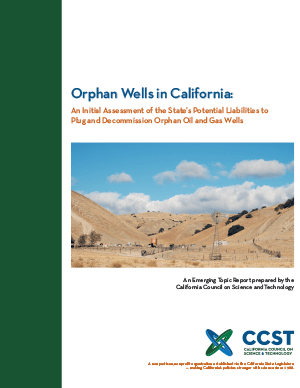
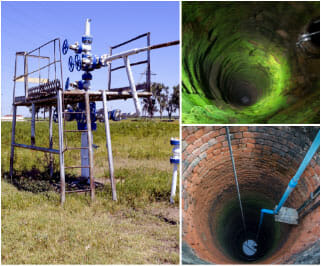

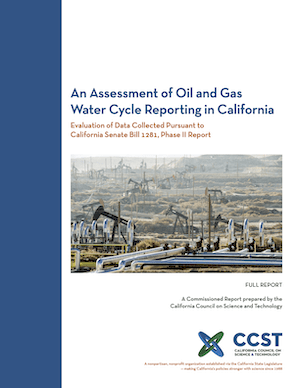

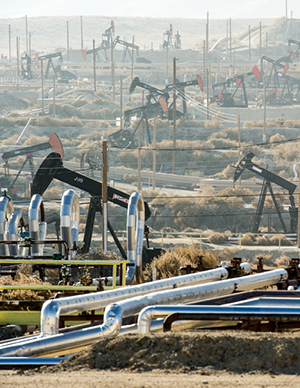
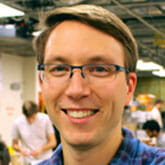 Björn is an Associate Professor of Electrical Engineering and Computer Science at the University of California, Berkeley. His research in Human-Computer Interaction focuses on novel design, prototyping, and implementation tools for the era of post-personal computing. His group investigates how better software and hardware can facilitate the exploration of interactive devices that leverage novel form factors and technologies (e.g., sensors and actuators). They also investigate how software can help students, designers, and makers to learn and share their expertise online. Björn is the Faculty Director of the Jacobs Institute for Design Innovation, a new undergraduate teaching institute focused on hands-on, human-centered design. Previously, he co-founded the CITRIS Invention Lab, a lab equipped with many digital fabrication and rapid prototyping tools. The lab serves as inspiration and testbed for many our research projects. He is also involved in the Berkeley Institute of Design and the Swarm Lab. Björn spent time with great colleagues at the Berkeley Center for New Media, and the Visual Computing Lab. He received his PhD from the Stanford Computer Science department and received an MSE in Computer and Information Science as well as Undergraduate Degrees in Digital Media Design and Communication from the University of Pennsylvania in 2002.
Björn is an Associate Professor of Electrical Engineering and Computer Science at the University of California, Berkeley. His research in Human-Computer Interaction focuses on novel design, prototyping, and implementation tools for the era of post-personal computing. His group investigates how better software and hardware can facilitate the exploration of interactive devices that leverage novel form factors and technologies (e.g., sensors and actuators). They also investigate how software can help students, designers, and makers to learn and share their expertise online. Björn is the Faculty Director of the Jacobs Institute for Design Innovation, a new undergraduate teaching institute focused on hands-on, human-centered design. Previously, he co-founded the CITRIS Invention Lab, a lab equipped with many digital fabrication and rapid prototyping tools. The lab serves as inspiration and testbed for many our research projects. He is also involved in the Berkeley Institute of Design and the Swarm Lab. Björn spent time with great colleagues at the Berkeley Center for New Media, and the Visual Computing Lab. He received his PhD from the Stanford Computer Science department and received an MSE in Computer and Information Science as well as Undergraduate Degrees in Digital Media Design and Communication from the University of Pennsylvania in 2002.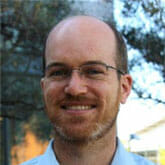 Lee Martin is an associate professor in the School of Education at the University of California, Davis. His research looks across in-school and out-of-school settings to investigate the varied ways that people assemble social, material, and intellectual resources to help them to meet their goals. He studies participation in making and the maker movement as activities that may help youth become more flexible and adaptive in their thinking and problem solving. In addition, he examines processes of identity development and sense of connection to STEM fields. His research group, Beta Lab, has recently built a mobile maker studio to facilitate their work in schools and community centers. They also work to create new thinking tools to foster noticing, reflection, ideation, and collaboration.
Lee Martin is an associate professor in the School of Education at the University of California, Davis. His research looks across in-school and out-of-school settings to investigate the varied ways that people assemble social, material, and intellectual resources to help them to meet their goals. He studies participation in making and the maker movement as activities that may help youth become more flexible and adaptive in their thinking and problem solving. In addition, he examines processes of identity development and sense of connection to STEM fields. His research group, Beta Lab, has recently built a mobile maker studio to facilitate their work in schools and community centers. They also work to create new thinking tools to foster noticing, reflection, ideation, and collaboration.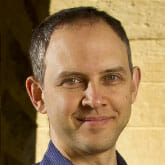 Paulo Blikstein is an assistant professor at the Stanford University Graduate School of Education where he directs the Transformative Learning Technologies Lab and the global FabLearn Program. Blikstein's research focuses on how new technologies can deeply transform the learning of science, technology, engineering, and mathematics. He creates and researches cutting-edge educational technologies, such as computer modeling, robotics, digital fabrication, and rapid prototyping, creating hands-on learning environments in which children learn STEM disciplines by building sophisticated projects and devices. He also focuses on the application of data-mining and machine learning for the assessment of hands-on, project-based learning. In 2010, Blikstein was a pioneer in bringing the maker movement to schools, and started the first educational program around digital fabrication in schools, FabLearn Labs (formerly FabLab@School). His group has built some of the first educational digital fabrication labs in the world and has conducted research in middle and high-schools in the US, Russia, Mexico, Spain, Australia, Finland, Brazil, Denmark, and Thailand. Blikstein was awarded the National Science Foundation Early Career award in 2011 and the AERA Jan Hawkins Early Career Award in 2016.
Paulo Blikstein is an assistant professor at the Stanford University Graduate School of Education where he directs the Transformative Learning Technologies Lab and the global FabLearn Program. Blikstein's research focuses on how new technologies can deeply transform the learning of science, technology, engineering, and mathematics. He creates and researches cutting-edge educational technologies, such as computer modeling, robotics, digital fabrication, and rapid prototyping, creating hands-on learning environments in which children learn STEM disciplines by building sophisticated projects and devices. He also focuses on the application of data-mining and machine learning for the assessment of hands-on, project-based learning. In 2010, Blikstein was a pioneer in bringing the maker movement to schools, and started the first educational program around digital fabrication in schools, FabLearn Labs (formerly FabLab@School). His group has built some of the first educational digital fabrication labs in the world and has conducted research in middle and high-schools in the US, Russia, Mexico, Spain, Australia, Finland, Brazil, Denmark, and Thailand. Blikstein was awarded the National Science Foundation Early Career award in 2011 and the AERA Jan Hawkins Early Career Award in 2016. Ghigo DiTommaso was trained as an architect in Florence, where he picked up the tools of the trade while engaging directly with the city's heritage and feeding a strong interest in urban history and theory. Professional degree and licensure in hand, he moved to Barcelona to become part of its thriving design community. There he joined the debate on the on-going transformation of the city and committed himself to the creation of beautiful public architecture. For several years he conducted urban design research at the Escuela Tècnica Superior de Arquitectura de Barcelona (EtsaB), while also working with prominent Catalan architects on numerous award-winning projects from conception to construction completion. In 2009 he entered the EtsaB doctoral program in architectural design, in 2010-2011 he was visiting scholar at the UC Berkeley College of Environmental Design, and in 2011-2012 adjunct faculty at the Universitat Ramon LLull. In late 2012, he relocated to the Bay Area to become a member of Rebar Art & design Studio. Since 2014, he is devoting his passion for design and his skills to Gehl Studio, while collaborating with the UC Berkeley College of Environmental Design, where he teaches, conducts research, and leads the Design & Innovation for Sustainable Cities summer institute.
Ghigo DiTommaso was trained as an architect in Florence, where he picked up the tools of the trade while engaging directly with the city's heritage and feeding a strong interest in urban history and theory. Professional degree and licensure in hand, he moved to Barcelona to become part of its thriving design community. There he joined the debate on the on-going transformation of the city and committed himself to the creation of beautiful public architecture. For several years he conducted urban design research at the Escuela Tècnica Superior de Arquitectura de Barcelona (EtsaB), while also working with prominent Catalan architects on numerous award-winning projects from conception to construction completion. In 2009 he entered the EtsaB doctoral program in architectural design, in 2010-2011 he was visiting scholar at the UC Berkeley College of Environmental Design, and in 2011-2012 adjunct faculty at the Universitat Ramon LLull. In late 2012, he relocated to the Bay Area to become a member of Rebar Art & design Studio. Since 2014, he is devoting his passion for design and his skills to Gehl Studio, while collaborating with the UC Berkeley College of Environmental Design, where he teaches, conducts research, and leads the Design & Innovation for Sustainable Cities summer institute.